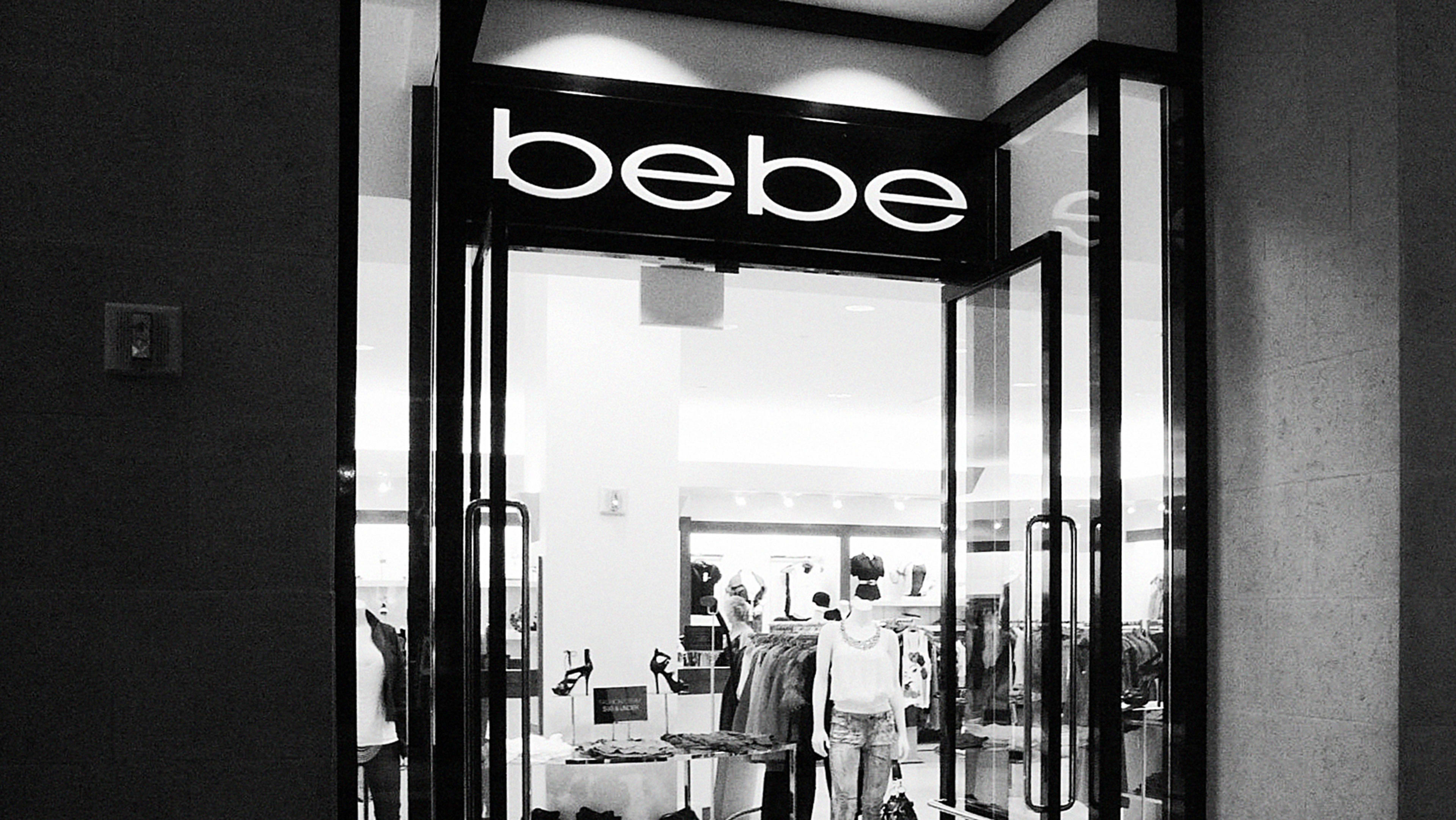If you spent your 20s clubbing and hunting down bandage dresses for your next date, you’re probably familiar with the iconic mall brand Bebe. Since it was founded in San Francisco in 1976, Bebe has been the go-to place for sexy, feminine outfits inspired by recent runway looks. But in April, Bebe announced that it was shuttering all of its 168 brick-and-mortar stores, a dramatic turn from the month before, when it said it was only closing 21 of its least-profitable stores. Bebe was among the many casualties of the “retail apocalypse,” the drastic downturn in mall traffic that has caused brands like Wet Seal, The Limited, and Claire’s to go under.
Judi Franco, a radio host in New Jersey, was downright gutted when she heard Bebe was closing shop. “I guess I was the perfect demographic for it: The 25- to 35-year-old woman who wanted to look hot for a date, sexy for a night out with the girls, or just a plain feel like a supermodel without spending a ton of cash,” she said. “Nobody but nobody could do this without Bebe.”
Franco was partial to Bebe’s more exotic looks. She loved the feathers, sequins, fur, and leather trims. While she enjoyed shopping at regular Bebe stores, the Bebe outlets filled her with even more joy. Yes, you might have to do a bit more digging, casting aside pieces that were way too risqué, but every so often, you’d find a well-priced gem. “When you found the perfect outfit at Bebe, it was like a religious experience,” she said.
Bebe announced that it would hold on to its online presence, but Franco wasn’t so sure that was the same. “It’s nothing like walking into a sea of color, sparkle, and glamour that was the brick-and-mortar Bebe experience,” she said.
But Bebe’s online comeback appears far more impressive than many predicted.
Bebe’s e-commerce site is more robust than ever, with a sparse interface, featuring the latest collection, which is full of rompers and mini-dresses. Last week, the brand also launched a new ad campaign that featured a bevy of ethically diverse global influencers popular with the social media-forward gen Z crowd. Balinese model Inka Williams struts in a floral Bebe print, together with singer Pia Mia from Guam. Jasmine Sanders, a social media sensation, and up-and-coming actress Herizen Guardiola are photographed wearing leather, lace, and feathers around L.A.’s Chateau Marmont hotel.
Without physical stores, Bebe has been engaging with customers on social media. The recent ad was shared widely over Instagram and Facebook, and has already reached more than 8 million people, according to the company that created the content.
This tech-savvy, forward thinking approach has much more in common with digitally native brands like Warby Parker and Everlane than with other brands that have been around for 40 years.
This transformation has been largely led by Bluestar Alliance, a brand management firm that has a $35 million stake in Bebe, or just less than 50%, and manages the brand’s day-to-day operations. Bluestar invests in a wide range of fashion labels, breathing new life into them by making them more digitally forward. Besides Bebe, it has investments in Kensie, Catherine Malendrino, and Limited Too, among 200 others.
It’s still early days into Bebe’s second life, but the website and the new campaign are promising. It opens up possibility to other mall brands that have not survived as consumers increasingly choose to shop online. For startups, the hardest part of launching a business is building brand recognition. Mall brands like Borders and Radio Shack are already well-known, but just didn’t adapt quickly enough to the digital era. Could other tech-forward licensing brands be the key to giving them a second life?
Recognize your brand’s excellence by applying to this year’s Brands That Matter Awards before the final deadline, June 7.
Sign up for Brands That Matter notifications here.
